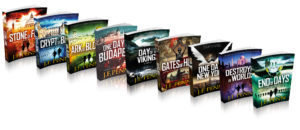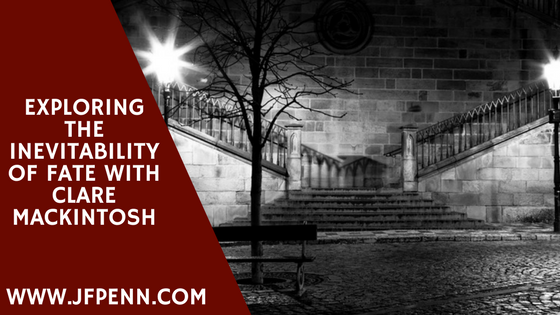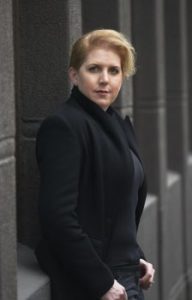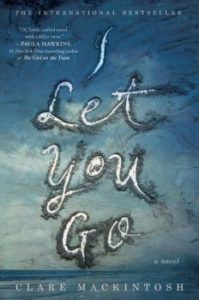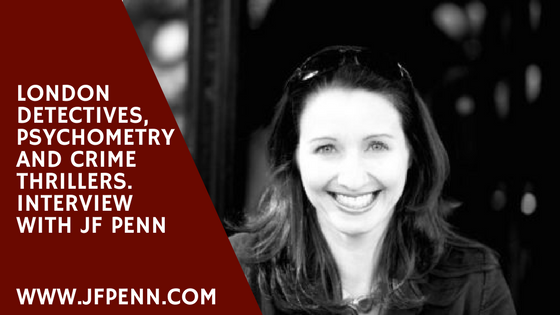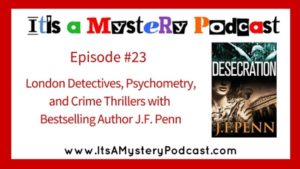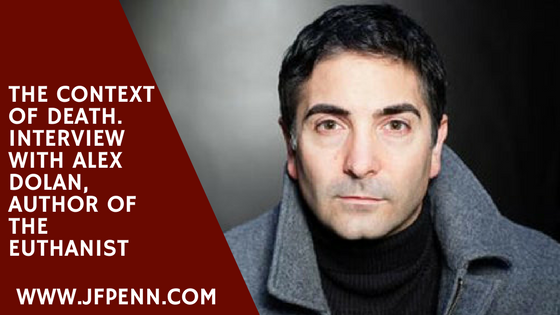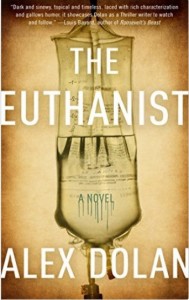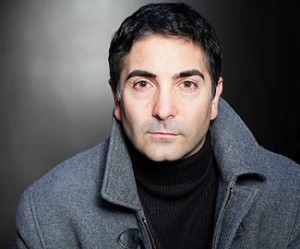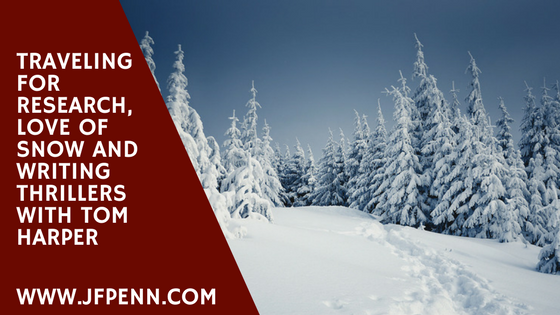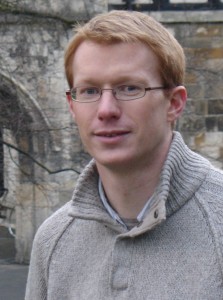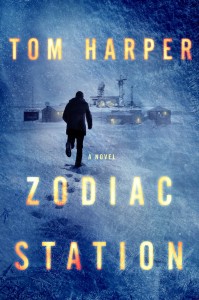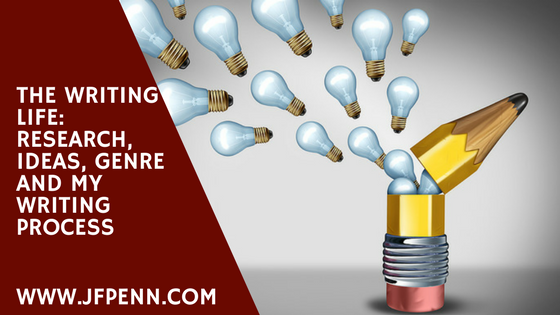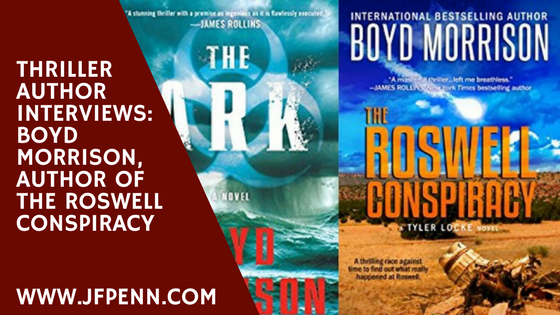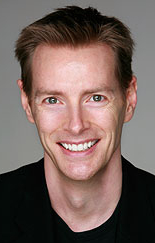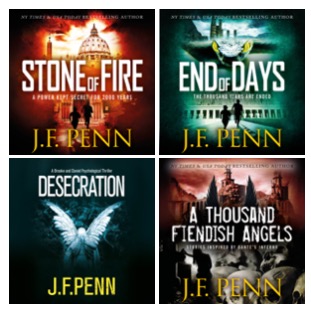I was recently interviewed on Meet The Thriller Author with Alan Petersen about the ideas behind my thrillers and my writing process.
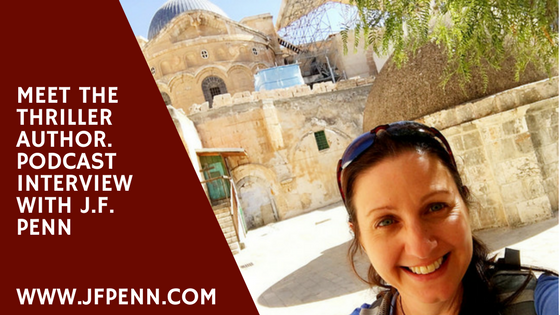
Transcript of interview with J.F. Penn
Alan: Hey everybody, this is Alan Petersen with Meet the Thriller Author. And in this episode of the podcast we're gonna be meeting with J.F. Penn who is a a New York Times and USA Today Bestselling Thriller Author. So we're really excited to have her on the podcast. How are you doing today, Joanna?
Joanna: I'm great. Thanks for having me on the show, Alan.
Alan: First, I want to thank you so much for agreeing to be on it, I really appreciate it. I'm excited to talk to you.
Can you tell us a little bit about your background for our listeners, please?
Joanna: First of all, I'm English, as you can probably tell from my accent, and I live in Bath, which is in the south-west of England. And it has 2,000-year-old Roman baths in the center of town, so very interesting place.
I have a degree in theology from Oxford, and that sort of religious aspect does come through in my books. I love walking, reading, and traveling, and I travel a lot. And that obviously comes through into my thrillers. I'm a cat person, and I like nice gin and tonic. So there you go, there's a few things.
Alan: Good stuff, yeah. Cats and gin and tonic, can't go wrong with that.
Joanna: Very relaxing.
Alan: Yeah it's very relaxing, yeah. I can just see the cat on your lap as you're having a gin and tonic.
Joanna: Exactly. I should say also, I am a full-time writer now, but I spent 13 years implementing accounts payable into large corporates. So I was a cubicle slave, in the corporate world, if people are wondering what I did before. I was a bit more creative with my life.
Alan: That's an interesting coincidence. I used to be IT support for the Accounts Payable department for a big corporation.
Joanna: There you go.
Alan: Wow, small world. So I know how exciting that was.
Joanna: I was probably phoning you all the time!
Alan: Yeah, exactly. So, can you tell us a little bit about your books? You have several series out.
 The ARKANE thrillers are probably your best-known thrillers. Can you tell us a little bit about those books?
The ARKANE thrillers are probably your best-known thrillers. Can you tell us a little bit about those books?
Joanna: Yeah sure. The ARKANE series has nine books now, and I say they're Dan Brown meets Lara Croft. The religious thriller with an edge of the supernatural and adventure around the world, stopping global conspiracies and always lots of thrilling stuff. But also a good dose of history, and interesting religious stuff, and myth, and I love all that. So that's cool.
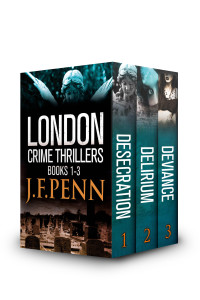
And then I have a couple of standalone's. Risen Gods is set in New Zealand, with the ancient gods rising as the earthquakes shake the land and very much based in living in New Zealand and what actually happens there. So those are my main series and I'm working on something else now, but you know how it goes. You start writing and you get more and more ideas.
Alan: Oh yeah, probably can't keep them from coming in sometimes.
What's your latest book that you have out now?
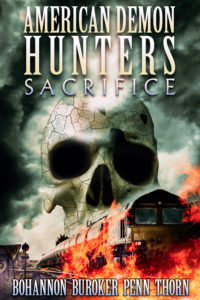
Alan: Oh wow.
Joanna: It's totally fun. It's a dark fantasy thriller and it's set on the train. The book opens when the characters get on the train and the book ends when the train arrives in New Orleans. A lot of bad things happen along the way, and the four characters meet and have to stop the demons destroying America.
That's the latest book, but I didn't entirely write that one. Obviously, that was co-written.
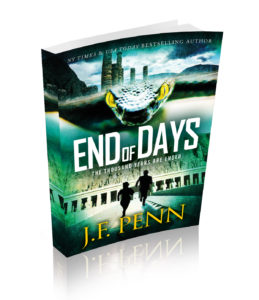
The serpent in the Pit of Revelation and the serpent in Eden and the demon Lilith, and when an ancient sarcophagus is found in the deepest part of the ocean, there's a hunt for the seven seals of revelation that can open it. And Morgan and Jake from the ARKANE Agency must stop the apocalypse before the blood moon rises over Jerusalem. Very exciting stuff. All my stories are a little bit dark fantasy, end of the world type stuff, but good triumphs. That's my important thing.
Alan: Yeah, that sounds like a lot of fun.
You had mentioned that you studied theology, so that must really come in handy then when you're writing your thrillers.
Joanna: Yeah, it is really interesting because I am fascinated by the supernatural. When people say, “Oh what are the themes of your book?” and I think at the end of the day it comes down to the question of good versus evil, which I see Stephen King tackling.

The fact that there's good versus evil in the world. Bad things happen but hopefully, good people stop them, and there is something more than the things that we see.
It's not like I've fought demons on a train or, stopped the snake of Revelation destroying the world, but it's so fascinating when we take mythology and religious sort of text. And what I tend to do is, in the ARKANE books, the beginning of most of my books there's a quote from the Bible or from some kind of scripture, and then I take that and turn that into a story.
The books are 95% based on truth and real places, like in End of Days there's a cistern under the western wall between the Dome of the Rock, the Muslim side and the western wall, the Jewish side. And if you put something down there, there's gonna be trouble.
So, you know, things like that. I actually went down and visited the cistern and thought that this would be a very cool location for something in my thrillers. The theological aspect comes through but they're not Christian books. I want to state that. I'm not actually a Christian, but I'm very respectful of all religions. In fact, my Destroyer of Worlds, which is set in India, is based in 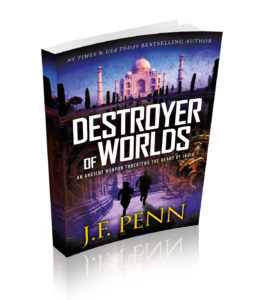
Alan: What's the background of your main characters? Are they soldiers or cops or theologians?
Joanna: Morgan Sierra, who is my main character of the ARKANE series, she's actually an Oxford University psychologist, but she's ex-Israeli Defense Force, so ex-military.
But her mother was Christian and her father was Jewish. So I bring in that religious aspect. Yes, she has some special skills from the military. She has Krav Maga and things like that. And she works alongside Jake Timber, who is also ex-military.
Like many thrillers, you have to have some kind of special skills that your characters have, or they can't fight. I'm definitely heavier on the myth and the places and the setting and the character than I am on guns and fighting. There are some guns and fighting but don't expect Clive Cussler or Dirk Pitt thrillers.
In the London Psychic Crime Thrillers, Jamie Brooke is a policewoman. So, again, some special skills there. But you know, I love researching this stuff, and I did try and go to a Krav Maga class, but I got kicked a lot and came home and cried and went, “You know what, I think I'll stay in the books.”
Alan: I was just gonna say, wow, that's pretty hardcore doing those courses. Preparing for the interview, I was looking at your website, and you had an article of when you were visiting Israel, and I remember seeing also a video where you were in a firing range testing different weapons.
You put a lot of research into this. You took that class and then you got kicked all over the place.
Joanna: Well, I think part of this is, 10 years ago I looked at my life when I was in Accounts Payable, and I was so miserable. I had a great job and everything, according to society, but I was really miserable. I thought, “What do I want to really do with my life?” and I really love reading, and I like writing, and I like being on my own a lot.
But I also love to travel and learn new things. So being a writer is a fantastic job and living and life for me because I basically go around doing things and then writing books that are set in those places or bringing those things into my stories. It is really cool.
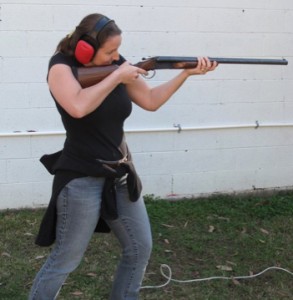
[You can watch a video about the Budapest research here.]
Now, obviously I'm British, we don't have guns generally, in our society. I mean, obviously in the criminal end, but not really in the law enforcement even. So guns are just not normal around Britain. So you have to go to Budapest to shoot some, but I figured I should.
Alan: What was that experience like?
Joanna: I enjoyed it for many reasons. I enjoyed it because I think it's good to understand how these things work and to have a healthy respect. Obviously, guns are a difficult topic, but I think handling guns with respect.
And as a thriller writer, I think it's very hard to avoid guns. I mean, it's something that is pretty fundamental in a thriller, to have some kind of fighting some point and it would be disingenuous not to have any weapons. Although often Morgan does fight with her hands, and Krav Maga is much more of a martial art.
But, yeah, I think it was really interesting. I haven't shot a gun since, to be honest, but it was fascinating from that point of view and good for research purposes. And a lot of Americans do this more regularly.
Alan: Probably a little more than in England.
Joanna: Exactly.
Alan: Or most parts of the world.
When you decided to start writing or try to write in fiction, did you choose thrillers and action? Was that a genre that you enjoyed as a reader before you tried to write a book in it?
Joanna: Yes. And I think that's so important. I don't know how you could write a book in a genre you don't love because if you want to do this for a living you have to write a lot of books and so you have to really enjoy it.
When I used to work that day job, and you'll know this, I would be there at my desk and then I would be just hanging out for a break, and when I went on lunch break I would be reading, and I would always be reading thrillers. And for me, it was escapism from my day job, my miserable day job. And then I'd spend my lunch hour in a thriller somewhere else in the world.

What we offer with our stories is a chance to escape and experience the world without leaving the armchair.
And also, I like to think I bring more than just the stories, so like I said, the question of good versus evil or whether there really is a supernatural. Because I always try and keep, obviously apart from demon hunters on the train, but my ARKANE series is very much…you could see this as scientific, you could see this as supernatural.
So I try to stay on that knife edge of is this real or is this something else, which is what I'm really interested in. I definitely write from my own love of thrillers and I read a lot of thrillers still but I also write for those people who need to escape.
Alan: And were you always writing when you were younger? Or did it just start when you decided to write these books?
Joanna: I always wrote journals, the angsty journals you wrote when you're a teenager. And I would write pen friend letters and, of course, I did English exams, A-levels they're called over here. I always read, but I never thought that I could be a writer, really, until the world changed with the advent of the Kindle, 10 years ago now, amazingly.
Alan: Incredible.
Joanna: I know, as we talk now, so 2007, 2008 as the ebook revolution started, I really saw that that could revolutionize what being a writer could be and it made it possible to make a living as a writer, and that's kind of when I made that decision. And also, I guess the other thing, I should be grateful for Dan Brown, because before Dan Brown my favorite book was really Umberto Eco's, “The Name of the Rose”. And actually that book is, I read it again recently, and it's really hard. It's a hard book to read.
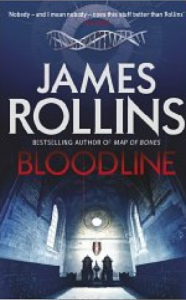
The film is awesome but the book is not that fun to read. And then Dan Brown took that kind of religious thriller genre and revolutionized it in The Da Vinci Code, and then, of course, Steve Barry, James Rollins, and a whole load more authors sprung up in his wake. And I see myself as part of that group who sort of… If you can write a story about things that you're really interested in and that you're curious about, then there will be readers who are curious about the same stuff you are.
Alan: That's a good point, yeah, it's not like you're alone.
If you're interested in it somebody else is gonna be interested in it too. Never thought about it that way.
Joanna: And what's lovely about the international markets now and being on Kindle and Kobo and iBooks and all these places, is that even if, in your country, there aren't people who like that stuff, there are probably people in the world who like that stuff. You can actually reach readers all over the world, which is super exciting. And as a reader, you can read books by authors from all around the world which is also cool.
Alan: That is really cool. I've read books from British authors, but I really didn't know anything about the British police or anything like that until I started reading Indie books about British cops. Before that, nobody was really writing those. So it's really cool to see that happening in the last five, six, ten years.
What is your writing process? Do you like outline everything before you start writing or do you go by the seat of your pants?
Joanna: I tend to get an idea and then think about it for quite a long time. At the moment, I'm thinking about a new series I'm going to write which is based on maps and cartography and some really interesting ideas around immigration and stuff like 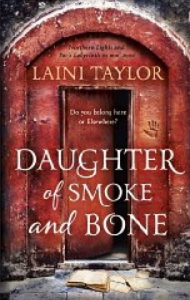
So I'm thinking about this, and I have the idea, and I've started to think about some of the characters, but I'm more of a pantser when it comes to writing. And a lot changes when I actually start writing. So I'm a bit of both, but certainly nowhere near someone like Jeffery Deaver, who writes a 200-page outline for a 400-page book.
Alan: Yeah, that's crazy.
Joanna: You know what I mean. And someone like James Patterson, I think, does outline a lot and works with co-authors. But then someone like Stephen King or Lee Child write just from the seat of their pants and I'd say I'm nearer the pantsers than the plotters but I have a dash of plotting.
Alan: I know this is kind of a hard question because it can vary so much.
When you're in the zone and you're writing a book, what's your writing day like?
Joanna: When I am ready to write that book…so I'm writing a non-fiction at the moment, but with fiction, as soon as I say, “Right, I'm starting the book on this day,” it's usually a Monday, because that's a good day to start.
I go to a cafe. So I have, and I totally recommend this if people want to write, I wear noise cancelling headphones and I go to somewhere away from my desk because at my desk I do things like this, and my admin, and things like that.
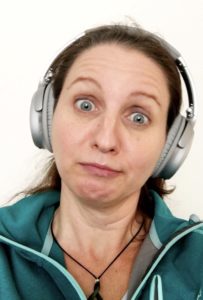
So I go to a cafe, I block out time in my diary, and I'm a morning person, so I write in the morning. I'll do a two-hour block at one cafe…and you really only need to buy one black coffee an hour to sit in a cafe. So I do my two coffees in one cafe and then, depending on how it's going, I'll have a walk, and then walk to another cafe and do a second session.
By lunchtime, I'm pretty much dead. So probably four hours of actual writing and I try and get that first draft done as fast as possible. So, you know, try and get it done within a month basically. So a month to six weeks to do the first draft.
And then, obviously, there's the editing phase, which can take awhile as well. But really that first draft is the only time when I will go to the cafe every single day and write. And then, obviously, then it's the editing and other things. And I do that at the cafe as well, but I listen to rain and thunderstorms through my noise-canceling headphones and that's what keeps me in the zone and it definitely helps.
Alan: That's interesting.
I've had a hard time with music because I get distracted, but that's interesting to try out nature sounds.
Joanna: Yeah, it's enough of a noise and also with the noise-cancelling, you basically shut out all the external noise and it just really helps you concentrate and get into that first draft writing phrase which can be, obviously, hard.
Alan: And what do you use? Are you a Scrivener user or do you just use Word?
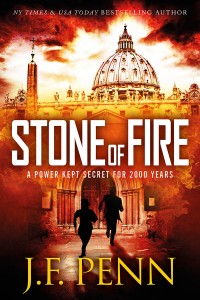
Alan: Yeah, it's a great product. I'm the same way too, I love to be able to drag the folders around.
I really like your covers, and I remember noticing that a lot of authors like yourself and Russell Blake, you change your covers every now and then. Is that just because you noticed changes in the market and you decide, “Oh, I'm gonna change it.”
I was curious about that when I see an author's changing covers.
Joanna: First of all, changing covers is completely normal. All traditional publishers will change covers on older books. If you look at something like “To Kill A Mockingbird” there will have been myriad covers on a book like that because they re-release it every now and then with a new cover.
But in terms of my covers, some of it has been re-branding. I think when you first start to write you don't really know what you're writing.
For example, Stone of Fire the original title was “Pentecost” and I wrote Pentecost, Prophecy and Exodus, which to me, because I'm a theologian, the words had a lot of meaning. But people thought they were Christian novels, but they're not Christian novels, they're just based around Christian myth and history. And so I re-branded as Stone of Fire, Crypt of Bone, Ark of Blood, and that's, you know, End of Days, and these are my ARKANE titles now.
So I did different covers when I re-branded…sort of re-branding to more of mainstream thriller look and feel which, you know, the couple running away from certain things. There are genre conventions.
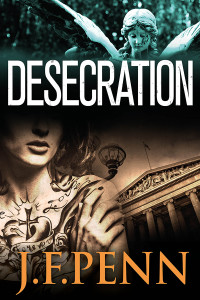
“Risen Gods” is another good example. I put a cover on that and we thought it was a horror novel. It does have demons in but it's not horror, there's no gore, well, there's a bit of gore but not very much.
So we've changed it to sort of a dark fantasy, urban fantasy, with a male character on the front with a sort of the look of volcanoes and magic around it. And it's almost not even magic, it's that kind of mythology of the Mauri people. So, changing that cover actually has made a huge difference and more people have picked up that book when it has a different cover.
I think it's very important to write your book from your heart. I mean, some people do write to market, but I write from my heart. Which means I might not know exactly where it fits, but over time we find our market.
Alan: Yeah. Well, your covers are beautiful. I'm looking at them right now. They look great.
Joanna: Thank you.
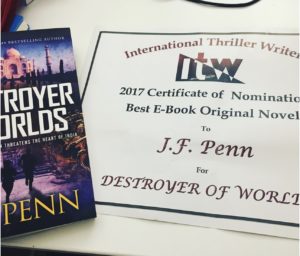
Can you tell us a little bit about that and that award?
Joanna: The ITW is the International Thriller Writers and it has some really big names in, so people like Stephen King and Lee Child, and Clive Cussler. I do love Clive Cussler, and I met him the other year and I was just so thrilled. Authors of any age can submit their work or the publishers will submit work to these awards every year.
They are judged, not on sales but on the quality of writing, so they're judged by other thriller authors. And so, yes, I'm a finalist in the final five for “Destroyer of Worlds” which is set in India and is a fun romp through India and Hindu myth.
That will be announced in July. And even if I don't win, which I hope I will obviously, but if I don't win it's still validation from my peers that my writing fits into that thriller genre. And I think, for a lot of writers, having other writers judge their work it's very scary but it can also be the most rewarding thing.
Alan: Yeah, especially making it as a finalist. All the big name thriller writers are a part of ITW.
Joanna: Well, hopefully, I'll win 🙂 Fingers crossed.
Alan: Yeah, exactly. Fingers crossed. It's an honor to be a finalist though.
Joanna: Yes, exactly. That's what I think.
What are you working on now? What's your current work-in-progress?
Joanna: Well, two things mainly. One is this new series around maps and cartography but I think when you're thinking about a new series, you do have to think about more than one book. I'm waiting until I have the full sort of ideas in my head before I write it down. I know the first scene. So I keep.. I'm like, aha, gotta write that scene down, but I'm almost waiting until I can't wait any longer on that.
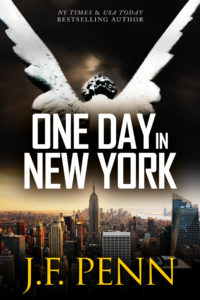
Because I learned a lot about Voodoo and, you know, what they call Voodoo versus Hoodoo, and Hoodoo is all the occult stuff and Voodoo is the actual religion. So it's really fascinating.
I want to write another ARKANE book set in America. I have one already, One Day in New York, but this will be the start of a new spin-off and then the maps book. I'm hoping to have lots of that out this year, and also short stories and… you know how it goes, there's always more to write.
Alan: Oh yes, absolutely.
Do you have a set goal that you try to publish every year?
Joanna: Well, not so much. I mean, last year I only published one novel, “Destroyer of Worlds”. This year I put out “End of Days” in January and then “American Demon Hunter: Sacrifice” and I'll definitely have one… maybe even two more by the end of the year.
I feel like this is a good year for me in terms of writing. So, no, I don't have a set number per year. Because I'm quite a pantser, I don't necessarily say, “Right, I have to have everything done at this time,” and that type of thing. Because I write non-fiction as well.
Alan: Okay. All right. Well, Joanna, I'm not gonna take up too much more of your time, it's been so awesome talking to you.
Before I let you go, is there anything that you would like to tell our listeners?
Joanna: Yeah, sure. So if you would like to try one of my books “Stone of Fire” is a free ebook on all platforms. So you can always check out “Stone of Fire” by J.F. Penn. And also you can get a free book on my website jfpenn.com/free and that's “Day of the Vikings” which opens in the British Museum and is sort of a combination of both of my series, it has characters from both of my series. So that's a pretty fun valet if you like Vikings set in the modern era. Lots of fun.
Alan: All right. Awesome. Well, thank you very much for being on the podcast. It was nice talking to you.
Joanna: Thanks so much, Alan.
Alan: Thanks, bye. Okay…
